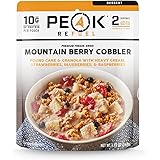Identify Essential Supplies and Stock Up
Understanding Your Needs
When it comes to stocking up on supplies, we first need to understand what our essential needs are. This means taking inventory of the items that we use daily and can’t do without. Think about basic necessities like food, water, medical supplies, and hygiene products. Jot down a list. Trust me, having a thorough list will save you multiple trips to the store.
You can’t overlook the importance of specific dietary needs. Whether you’re vegan, gluten-free, or have allergies, make sure you have enough of the foods that are okay for you to eat. And don’t forget Fido or your feline friend—stock up on pet food and supplies too.
Remember, the goal here isn’t to hoard, but to ensure that you and your family have enough to sustain yourselves comfortably for an extended period. It’s about thinking ahead and being prepared, not causing panic.
Storage Solutions
Now that you’ve identified your essentials, let’s talk storage. You don’t need a warehouse; smart storage solutions can make the most of the space you have. Start with the pantry. Use shelves to organize items by category – canned goods, grains, snacks, etc. Clear containers can be a lifesaver for visibility and keeping things fresh.
Don’t forget to designate space for medical supplies. Having a well-stocked first aid kit and easy access to medications is crucial. Invest in a small storage bin where you can keep all your healthcare necessities. Label everything for quick access in emergencies.
Another pro tip? Utilize vacant spaces creatively. Think under the bed, the back of the closet, or even a rarely-used guest room. The key is to know exactly where everything is so you can grab it in a heartbeat if needed.
Budgeting for Supplies
Let’s be real; stocking up can get expensive. But it doesn’t have to break the bank if you budget smartly. First, set a spending limit based on your financial situation. From there, prioritize your list. Essentials first, luxuries later.
Deal hunting becomes an invaluable skill here. Keep an eye out for sales and bulk discounts. Using coupons can also shave off a significant chunk of your bill. There are even apps out there that alert you to deals on specific items you’re looking for.
== > What if ... Get a FREE Subscription to PREPARE
Remember to balance quality and quantity. Aim to get the best value for your buck without compromising too much on the quality of your essential items. This way, your supplies will last longer and be more effective.
Establish a Communication Plan
Family and Friends Network
Connecting with family and friends during a pandemic is not just about socializing, it’s about building a network of support. Establishing a clear communication plan can provide peace of mind and quick assistance when needed.
Create a comprehensive contact list with names, phone numbers, addresses, and emails of your close-knit circle. Make sure everyone has a copy and knows where it is. Update it regularly to ensure no one gets left out in critical times.
Designate a point person for your group who can centralize communications. This helps streamline updates and ensures everyone is informed promptly. Having one go-to person can also minimize confusion during heightened moments of uncertainty.
Utilizing Technology
Thanks to today’s tech, staying connected has never been easier. Familiarize yourself and your network with various communication apps and platforms. From video calls to group chats, these tools can bridge the gap when physical distance becomes a barrier.
Make sure you have reliable internet and backup data plans. In times of high digital traffic, you might experience slow speeds or outages. Knowing you have a backup eliminates unnecessary worry.
It’s not just about communication; it’s also about information sharing. Use cloud storage to share essential documents and updates. That way, everyone has access to the most current information, mitigating misunderstandings.
Emergency Contact Protocol
It’s crucial to have a well-defined emergency protocol within your communication plan. Start by determining who needs to be informed first in case of an emergency. This could be family members, close friends, or even neighbors.
Clearly outline the steps to take in various scenarios. For instance, what should be done if someone falls ill? Where should you go for medical aid? Having predefined steps can reduce panic and ensure swift action.
Regular drills or check-ins can keep everyone on the same page. A monthly or bi-weekly review of your emergency contact protocol ensures that the information remains fresh and everyone knows their role.
Maintain Physical and Mental Health
Physical Well-being
Staying physically healthy during a pandemic goes beyond avoiding illness—it’s about building resilience. Start with a balanced diet rich in vitamins and nutrients. Include plenty of fruits, vegetables, lean proteins, and whole grains to strengthen your immune system.
Exercise is another pillar of physical health. Whether it’s a home workout routine or outdoor activities like walking or running, the key is consistency. Regular exercise not only keeps you physically fit but also releases endorphins that boost your mood.
Hydration can’t be overlooked either. Drinking enough water keeps your system running smoothly and helps flush out toxins. Aim for at least eight glasses a day, and try to limit sugary or caffeinated beverages that can dehydrate you.
Mental Health Strategies
The psychological toll of a pandemic can be immense, and it’s important to take proactive steps to safeguard your mental health. Start by setting a routine. Having a daily schedule can provide a sense of normalcy and keep your mind occupied.
Don’t hesitate to reach out for support. Whether it’s talking to friends, family, or professionals, sharing your feelings can provide relief and perspective. Virtual therapy sessions have become more accessible and can be a valuable resource.
Make time for relaxation and hobbies. Activities like reading, cooking, gardening, or even musical pursuits can take your mind off stressors. These small joys can build a big buffer against mental strain.
Sleep Hygiene
Never underestimate the power of a good night’s sleep. Quality sleep is fundamental to both physical and mental health. Start by creating a restful environment—keep your bedroom cool, dark, and quiet.
Establish a bedtime routine to signal your body that it’s time to wind down. This could include reading a book, taking a warm bath, or doing some light stretches. Avoid screens at least an hour before bed as the blue light can interfere with your sleep hormones.
Lastly, try to maintain a consistent sleep schedule. Going to bed and waking up at the same time every day helps regulate your internal clock, making it easier to fall and stay asleep.
Stay Informed with Credible Sources
Identifying Reliable Sources
When a pandemic strikes, misinformation can spread just as fast as the virus itself. Knowing where to get reliable information is critical. Trustworthy sources include government health agencies, reputable news organizations, and recognized global health bodies like the World Health Organization (WHO).
Be wary of sensationalism. Headlines designed to incite fear can distort reality. Cross-check facts from multiple credible sources before accepting them as truth. Reliable information tends to be consistent across different platforms.
It’s also wise to follow updates from local health authorities. They will have the most relevant information for your specific area, including any regional policies or health advisories.
Setting Up News Alerts
To stay updated without getting overwhelmed, set up news alerts. Most smartphones and email platforms have options to receive news updates directly. Customize these alerts to focus on essential updates rather than every piece of news that comes out.
Limit your exposure to news to specific times of the day. Constantly checking updates can be draining and increase anxiety. A couple of designated times for news can keep you informed without affecting your well-being.
Consider signing up for newsletters from reliable sources. Many organizations send out daily or weekly digests that summarize critical information, making it easier for you to stay informed without wading through endless news articles.
Critical Thinking Skills
Critical thinking is your best defense against misinformation. Question the sources of the information you’re consuming. Who wrote it? What’s their agenda? Check the publication date to ensure the information is current.
Learn to differentiate between opinion pieces and factual reporting. While opinions can provide insight, they’re not necessarily rooted in fact. Being able to distinguish between the two is crucial.
Lastly, don’t fall into the trap of confirmation bias. It’s easy to accept information that aligns with your pre-existing beliefs and dismiss anything contrary. Always stay open-minded and willing to adjust your views based on accurate, new information.
FAQ
What are the essential supplies needed for a pandemic?
Essential supplies include food, water, medical supplies, hygiene products, and any special dietary items you need. Don’t forget to stock up on pet food and supplies if you have animals.
How can I effectively stay connected with my family and friends during a pandemic?
Establish a contact list and designate a point person to streamline communication. Utilize technology like video calls and group chats to stay connected and ensure everyone has the latest information.
What are some strategies for maintaining mental health during a pandemic?
Set a daily routine, reach out for support, and dedicate time to hobbies and relaxation. Virtual therapy sessions can also be a valuable resource for managing mental health.
How do I ensure that the information I get during a pandemic is reliable?
Rely on trusted sources like government health agencies and reputable news organizations. Set up news alerts for updates and always cross-check information from multiple credible sources.






